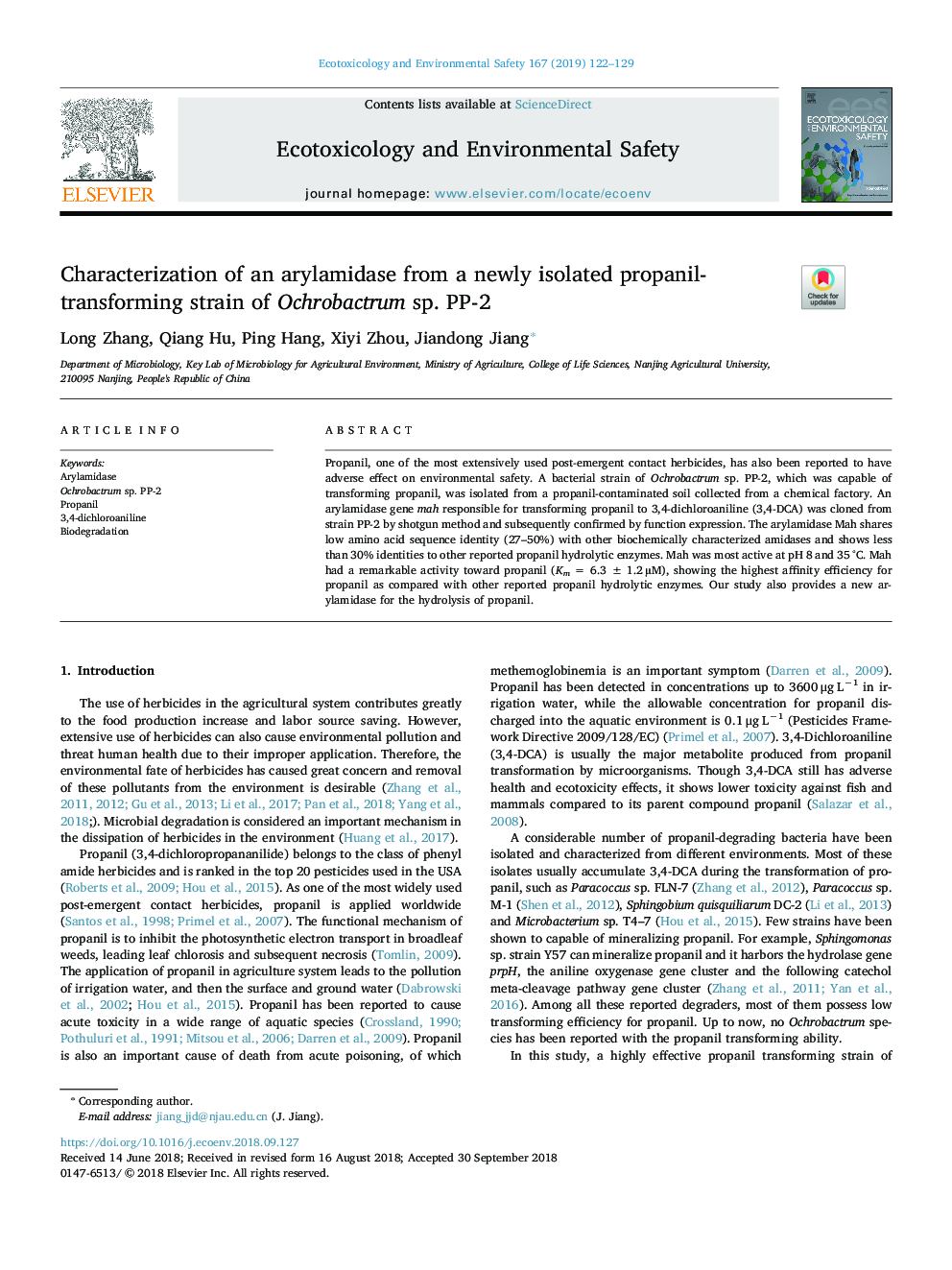| Article ID | Journal | Published Year | Pages | File Type |
|---|---|---|---|---|
| 11013123 | Ecotoxicology and Environmental Safety | 2019 | 8 Pages |
Abstract
Propanil, one of the most extensively used post-emergent contact herbicides, has also been reported to have adverse effect on environmental safety. A bacterial strain of Ochrobactrum sp. PP-2, which was capable of transforming propanil, was isolated from a propanil-contaminated soil collected from a chemical factory. An arylamidase gene mah responsible for transforming propanil to 3,4-dichloroaniline (3,4-DCA) was cloned from strain PP-2 by shotgun method and subsequently confirmed by function expression. The arylamidase Mah shares low amino acid sequence identity (27-50%) with other biochemically characterized amidases and shows less than 30% identities to other reported propanil hydrolytic enzymes. Mah was most active at pH 8 and 35â¯Â°C. Mah had a remarkable activity toward propanil (Km = 6.3â¯Â±â¯1.2â¯ÂµM), showing the highest affinity efficiency for propanil as compared with other reported propanil hydrolytic enzymes. Our study also provides a new arylamidase for the hydrolysis of propanil.
Related Topics
Life Sciences
Environmental Science
Environmental Chemistry
Authors
Long Zhang, Qiang Hu, Ping Hang, Xiyi Zhou, Jiandong Jiang,
